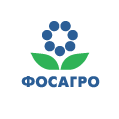
St Petersburg – PhosAgro CEO Andrey Guryev took part in a panel session called “Responsible Development vs. Sustainable Consumption: Nature and Technology” at the St Petersburg International Economic Forum.
The discussion was moderated by Andrey Fursenko, aide to the President of the Russian Federation. Panel participants included Irina Bokova, Chairperson of the PhosAgro Committee on Sustainable Development, who had previously served two terms as UNESCO Director-General (2009–2017); Alexander Dynkin, Director of the Institute of World Economy and International Relations of the Russian Academy of Sciences; Mikhail Kovalchuk, President of the Kurchatov Institute national research centre; Gleb Nikitin, Governor of the Nizhny Novgorod region; and Ilkka Herlin, Chairman of the Board of Directors of the Finnish company Cargotec Oyj.
The discussion touched on issues related to sustainable development and the responsibility of all participants in the process – the state, society and business. The subject of the discussion was outlined by the moderator in the form of a challenging dialectical dilemma: technological development requires more and more primary natural resources to meet vital human needs, which leads to the rapid exhaustion of those resources, climate change due to greenhouse gas emissions, deforestation and the loss of farmland through erosion, desertification, etc. Do states and society have the strength and sense of responsibility to change their destructive tendency to rapidly exhaust resources at the expense of future generations?
During her presentation, PhosAgro’s Bokova noted that the UN Sustainable Development Agenda was no accident, stressing that achieving the 2030 Sustainable Development Goals requires targeted efforts on the part of states, society and business. She added that responsible behaviour on the part of all parties and an emphasis on long-term benefits in this regard are beneficial to both business and society. As an example, she cited the activities of PhosAgro, which produces environmentally friendly fertilizers, adheres to the careful and rational use of natural resources and implements international projects in the field of soil protection, in particular its joint project with UNESCO and IUPAC, Green Chemistry for Life, which was launched by PhosAgro in the International Year of Chemistry 2011. The project is aimed at supporting young chemists all around the world and finding new solutions intended to help achieve the UN’s Sustainable Development Goals.
In this regard, Fursenko noted that “there are approaches that allow both business and society to win. It’s possible for business interests not to contradict the interests of sustainable development. Approaches can be found that will help develop a business that protects the environment. That is, this is possible. The fact that not everyone is following this trend is another issue.”
Speaking about the impact of agriculture on the environment, Bokova noted that humanity is faced with the need to reduce the negative impact of agricultural activities on the environment and at the same time to provide food for the planet’s rapidly growing population. She said that extensive agricultural development is a dead end and called on public and private actors to change the paradigm of thinking and to shift to an integrated approach to solving environmental problems.
“In order to ensure food security, we cannot continue to expand arable land and destroy forests. It’s impossible to solve health problems if food products are not environmentally friendly”, said the Chairperson of the PhosAgro Committee on Sustainable Development.
Bokova called on the international community to follow the example of the European Union, which at the end of May adopted final decisions limiting trade in phosphate-based fertilizers with high content of cadmium and other heavy metals.
In his address, Guryev stressed that PhosAgro, as a producer of complex mineral fertilizers that are safe in terms of human health and soil fertility, welcomed the EU’s decision.
“PhosAgro ensures that its fertilizers comply with the stringent EU requirements with so much room to spare that they could set a reference standard in terms of their purity”, said the Company’s CEO. Guryev also noted that PhosAgro produced a unique form of apatite concentrate that does not contain cadmium or other heavy metals.
“We supply our customers with an environmentally friendly product, which gives Russian farmers a competitive advantage. Russian agriculture is becoming the most environmentally friendly agricultural industry in the world. And this path – from green minerals to green food – this is the sort of rethinking of our competitive advantages that we should consider as an industry and as a company”, stressed PhosAgro’s CEO.
During his annual address to the Federal Assembly in February 2019, Russian President Vladimir Putin outlined the objective of creating a Russian brand of green products to unite producers of mineral fertilizers and agricultural products, to help realize Russia’s competitive potential in the international arena and to start a forward-looking trend in terms of achieving the Sustainable Development Goals.
Under the leadership of the Ministry of Agriculture of the Russian Federation, intensive work is now under way to develop and coordinate with federal executive bodies on a road map aimed at fulfilling this priority objective. There is no doubt that this order will be implemented on time, since all participants have an interest in receiving additional benefits for domestic exports, both from business and from the government.
“Russia has a unique opportunity to gain a unique competitive advantage and provide the population of the planet with environmentally safe and affordable mass consumer goods”, said Guryev.
